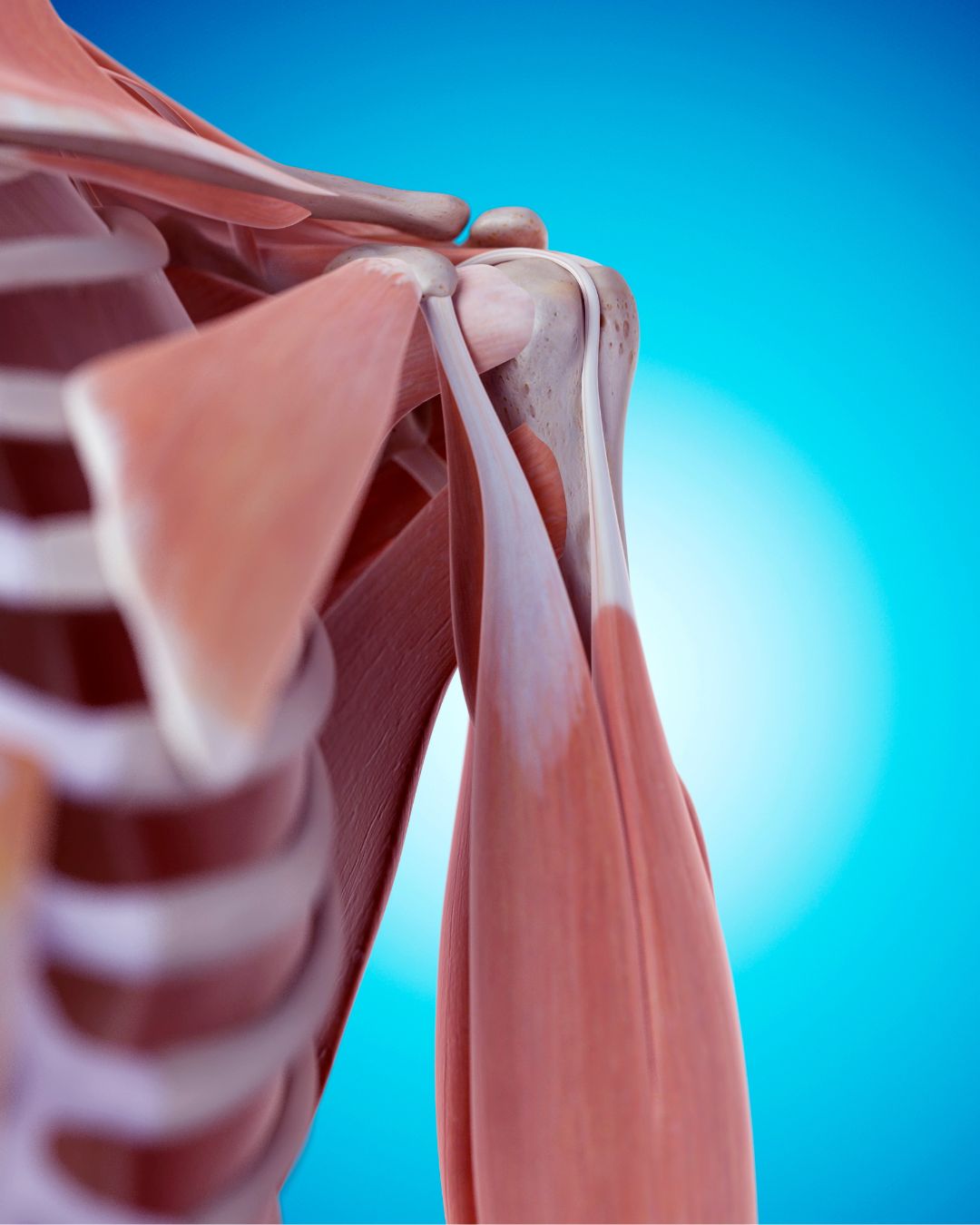
Shoulder Impingement Syndrome Treatment in Bend, Oregon
Shoulder impingement syndrome is thought to be the cause of up to 65% of all shoulder pain complaints. Our shoulder is a “ball and socket joint” consisting of the humerus (upper arm bone) and the scapula (shoulder blade). The rotator cuff is a group of muscles and tendons that hold the shoulder joint in place. These muscles allow you to raise your arm, throw a ball, and more. Our arm is attached to our body via the clavicle, which has 2 joints: the acromioclavicular joint, which attaches to the scapula, and the sternoclavicular joint, which attaches to the sternum.
Impingement occurs when the tendons of the rotator cuff are pinched or “impinged” due to compression that occurs between the Acromioclavicular joint and the humeral head of the upper arm during movement. Most commonly, this is a condition that develops slowly over time. However, an acute injury such as a fall with an outstretched arm may also cause an impingement. Repetitive compression leads to swelling and inflammation, which results in pain. Without proper treatment, repeated impingement can lead to fraying of the tendons and increase the risk of a rotator cuff tear.
Common Causes Impingement Syndrome
- Repetitive movements of the arm
- Overhead activity
- Muscle Weakness
- Poor Body Mechanics
- Poor Posture
- Weight Bearing exercise (planks, pushups, dips)
- Lifting overhead or with outstretched arms
What are the Symptoms and Signs of Shoulder Impingement Syndrome
The most common symptoms of shoulder impingement syndrome, according to the Cleveland Clinic, include:
- Pain when the arm is extended overhead
- Pain when lifting the arm or when lowering the arm from a raised position
- Pain when reaching
- Pain in the front of the shoulder
- Pain that moves from the front of the shoulder to the side of the arm
- Pain at night, especially when lying on the affected side
- Pain when reaching behind
- Shoulder weakness and stiffness
Shoulder impingement syndrome is similar and often related to other shoulder injuries, such as bursitis and rotator cuff tendonitis.
How Physical Therapy Can Help with Shoulder Impingement Syndrome
Physical therapy is the most recommended treatment for shoulder impingement syndrome because it can effectively decrease pain, increase range of motion, and improve shoulder strength and awareness of how to move and use your arm. Rehabilitation is customized to the individual, focusing on the causes of your shoulder pain and tailoring treatment to your unique needs and goals. Treatment consists of:
- Patient Education – As movement experts, your physical therapist will perform a series of tests and ask questions to understand the underlying cause of your shoulder pain. They may then provide lifestyle and activity modification education to help you heal and avoid future pain and injury related to your shoulder.
- Manual Therapy – Inflammation is a natural response to injury or illness. It causes pain and tenderness and can impede functionality. Hands-on therapy allows us to assess and treat any joint and/or soft tissue causes related to the impingement so you can begin healing. This may include the use of:
-
- Joint tissue mobilization and manipulation
- Soft tissue massage and mobilization
- Instrument-assisted mobilization (ISTYM)
- Neuromuscular Facilitation
- Exercise Program – Our exercise program is designed to build strength and improve range of motion. Once we show you the ropes, it is up to you to continue to do the work at home to ensure complete recovery. Your program will be modified based on your progress. Alpine’s number one goal is to help you get back to doing what you love and guide you through exercises to prevent the recurrence of future symptoms.
- Functional Training – Impingement is often related to improper training or inefficient movement patterns of the shoulder and upper body. Our treatment will include activities to teach you proper movement patterns to improve your ability and avoid future injury.
Let’s Get Started? Finding a Shoulder Impingement Syndrome Physical Therapist in Bend, OR
If you have shoulder pain that is not improving on its own, consider physical therapy. Our one-on-one and consistent care model is uniquely suited for quick results. Alpine’s shoulder experts can help you feel better and move better so you can get back to enjoying the activities that bring you joy.
Our physical therapists come from various backgrounds, each with areas of expertise. When you call our office for an appointment, we can help pair you with a physical therapist best suited to your concern. We look forward to meeting you.